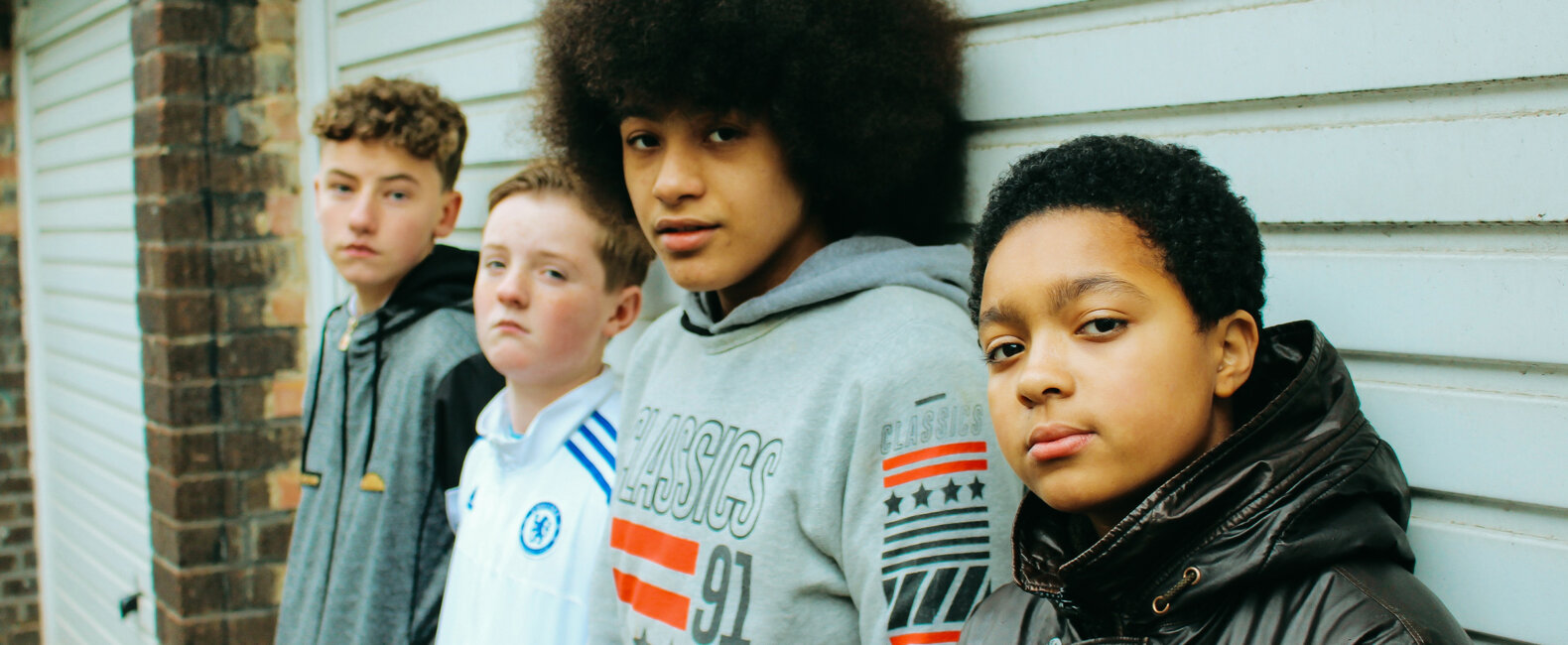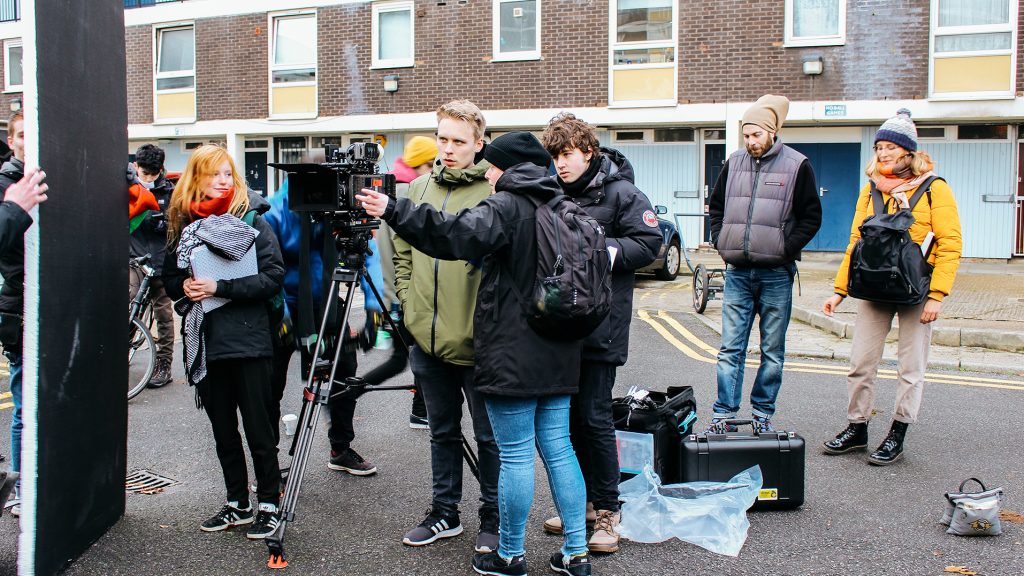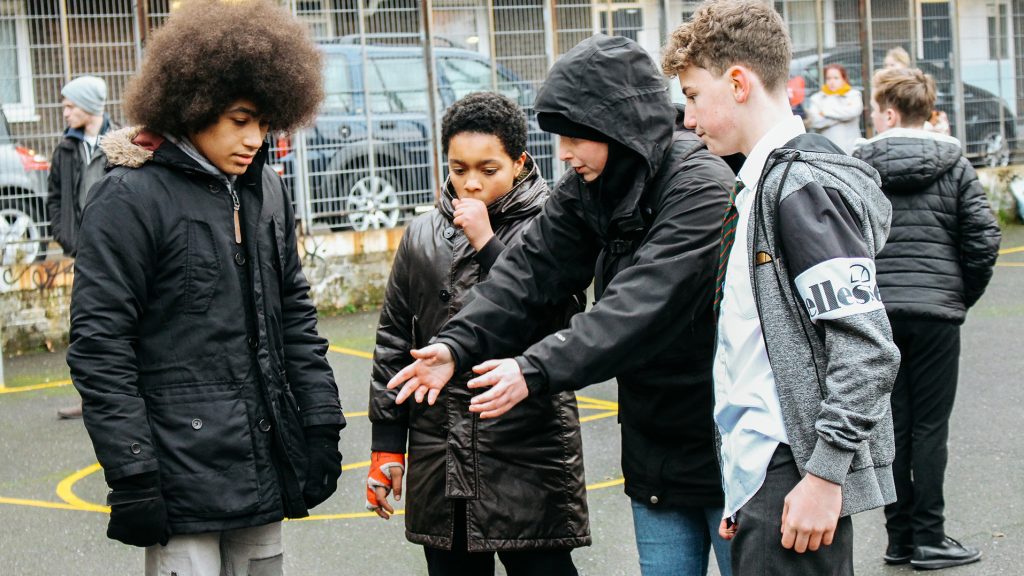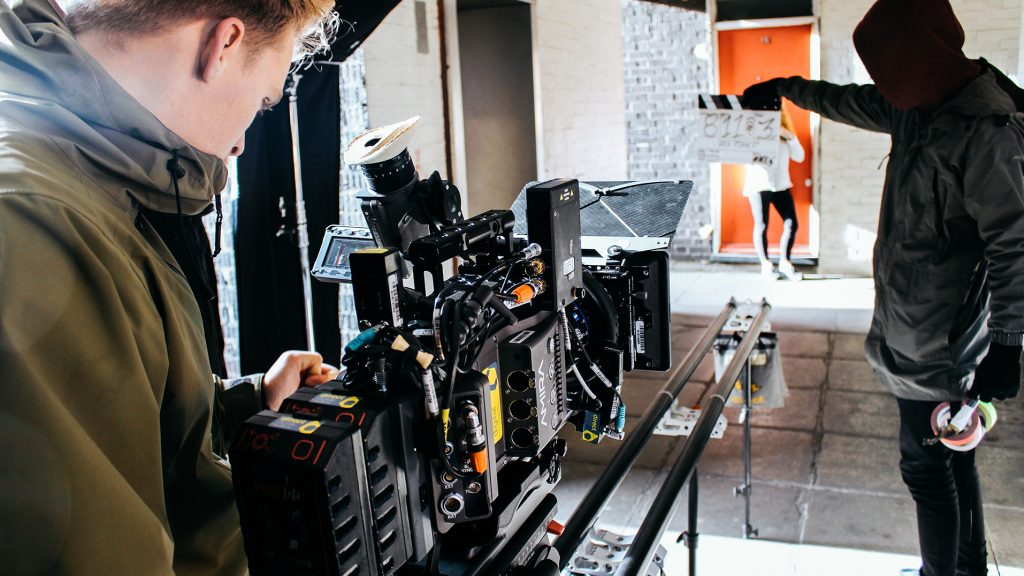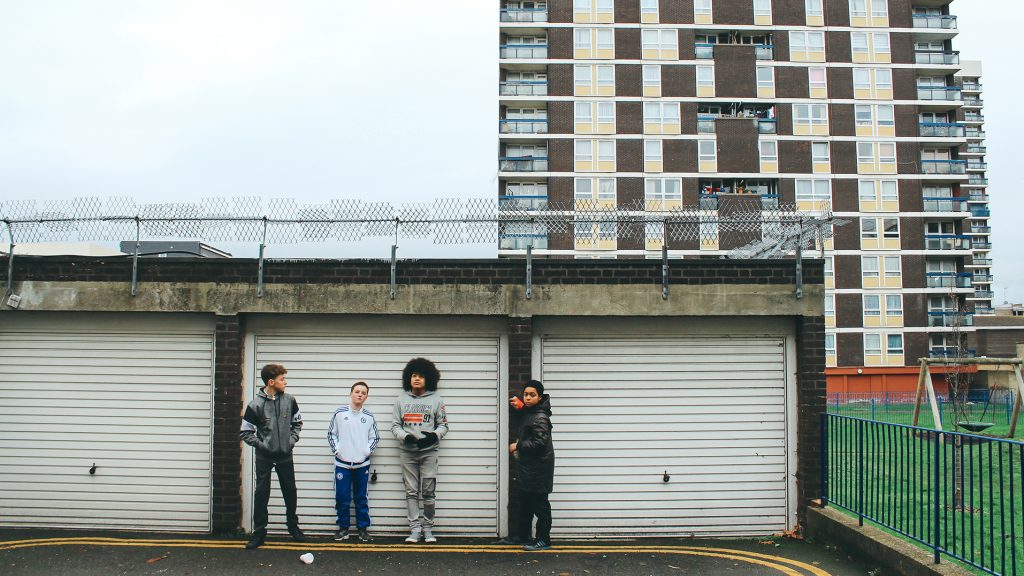If you gave five different filmmakers the same prompt, you’d get five different films. That’s because every objective element of the process (plot, characters, story) passes through the most subjective filter of all: our perspective. What results is an infinitely nuanced version of reality, with all of our biases, opinions, and values attached. This perspective is what makes films unique and it’s defined by our first-hand experiences, which is exactly why U.K. Director Charlotte Regan’s films are successful — she writes what she knows. Nothing more, nothing less.
“At the minute, the stories I’m willing to tell are all based on experiences I’ve had or characters that I know really well. Well enough that I feel like I can write about them. That’s all it is, really,” Charlotte told us. “I grew up in a working-class family. It’s kind of the world I’ve seen, so it’s the world that I feel like I should be writing about — rather than a world that isn’t my own.”
Her latest film Drug Runner blends documentary and narrative styles by telling the story of a 15-year-old cocaine dealer. It covers subject matter you might assume would take a political stance — but it doesn’t. Instead, it tells the truth, in all of its nuanced, grey glory. In other words, it’s interesting. We talked with Charlotte about where this story came from and why she decided to take the “drug film” in a different direction.
Musicbed: How did you find this story?
Charlotte Regan: It all started with my mate, who the film is about, and whose dialogue the voice actor is speaking. We grew up together, so it was around the time where he was getting into that kind of thing. Whenever I see him now, he remembers that time quite, I suppose, romantically. He sees it as a time when he was doing quite well, using his initiative. I just thought it was a weird perspective on the whole situation.
I think, if you’re not from a working-class background, people make a lot of assumptions about kids who get into that kind of thing. They don’t think that kids maybe do something like that to help their parents. He was just doing this for his mom and sister, so I suppose it was a story I just hadn’t seen before.
So you decided to interview him?
Yeah, it started with a lot of interviews. There are probably about six hours of interviews. It just had to be cut down, because he can waffle on for a long time [laughs].
How did he feel about his story being developed into a film?
I suppose, initially, I wasn’t even sure what the idea was when I started interviewing him. I was doing the interview and transcribing it, thinking, maybe I’ll be able to use this for something one day. But, he was up for anything, as long as his face wasn’t shown and his voice wasn’t used — which is why we had to use a voiceover actor. He really didn’t mind. He’s a massive character in real life anyway. He loves to chat about himself, in a nice way. He’s just very charismatic and he loves that there’s a film about him, even though people have no idea it’s about him. I guess he just thinks he’s Leonardo DiCaprio for a couple minutes [laughs].
Just looking at your body of work, there seems to be a common thread — police officers, prison, drug dealers, etc. — why is that?
Yeah, I supposed it’s intentional in a way. It’s not that I have some political agenda that I’m pushing or anything like that. I kind of feel like I’m better at writing stories that are my own and stories that I can connect with. At the minute, the stories I’m willing to tell are all based on experiences I’ve had or characters that I know really well. Well enough that I feel like I can write about them. That’s all it is, really. I grew up in a working-class family. It’s kind of the world I’ve seen, so it’s the world that I feel like I should be writing about — rather than a world that isn’t my own.
To me, it’s really important, because I don’t feel like I have the experiences to write about anything else. I’m sure better writers can dabble in other worlds all the time. For me, if I don’t know the characters, I don’t really know the voices in the script. If I don’t know the characters, they just all read the same. They all read as if it’s me speaking. I think what’s unique about every filmmaker is the experiences we’ve had. That’s where our voices come from. Trying to hone in on that and tell something you know, I think, will only make your work better.

How did you hone in on what you wanted to say? Six hours of interviews sound like a lot.
Oh my god. It took ages. Luckily, whilst I was doing that, I had no real intentions of making the film, so I was just cutting it down for the sake of cutting it down. I didn’t have funding, so I just assumed I would never get funding for something of that nature or that topic. It was just for fun. I was cutting it down almost as if it were a spoken-word piece that I was just going to post on the internet, which I probably would have if I didn’t get funding. I started the interviews about two years ago, just transcribing them, so it’s taken a long time.
The bits I chose — I didn’t pick anything that made him go either way, that made him look like too much of a hero or too much of a villain. I wanted it to be very matter-of-fact. There are moments, like when the mum is involved, but mainly I went for the bits where he wasn’t going to be too emotive with his storytelling and was just telling it how it was. There are a lot of pieces about the sadness of kids living in poverty. This is a different piece.
Has your interviewee seen the film? What did he think?
He thinks he’s a proper little gangster [laughs]. He quite likes it. But, I think it’s quite upsetting for him to see the bit we recreated at the end with his mum. Because that was something we tried to recreate frame-for-frame — it’s all based on his original house or his memory of it at least. Everything is quite true to what his life was like at the time. So, I think the end scene was quite emotional to watch because he’s old enough and mature enough to realize the strain that him being arrested all the time put on his mum.
Why is that different perspective important to you?
I suppose people are quick to recoil if they’re watching this kid who they see as a drug dealer; they may think he doesn’t deserve to be looked upon with sympathy. If you make a film where you’re just trying to tug at the heartstrings, I think the audiences know you’re trying to do that. People aren’t dumb. If you’re putting mad emotive music on it, or really trying to make us feel for this kid, I think people would sense it and it might alienate certain groups of people. I always wanted it to be a film that could be watched by all classes; whether it’s upper class, middle class, wealthy people, they could all look at it objectively. I hoped that the matter-of-factness would allow them to do that.
In the U.K. — I don’t know what it’s like in America — but all the stuff we get about drug dealers is very gritty and kitchen sink. They’re always made out to be villains. I just wanted to make something that was almost like an instructional video or something, a video that just says how it is rather than being too emotive.
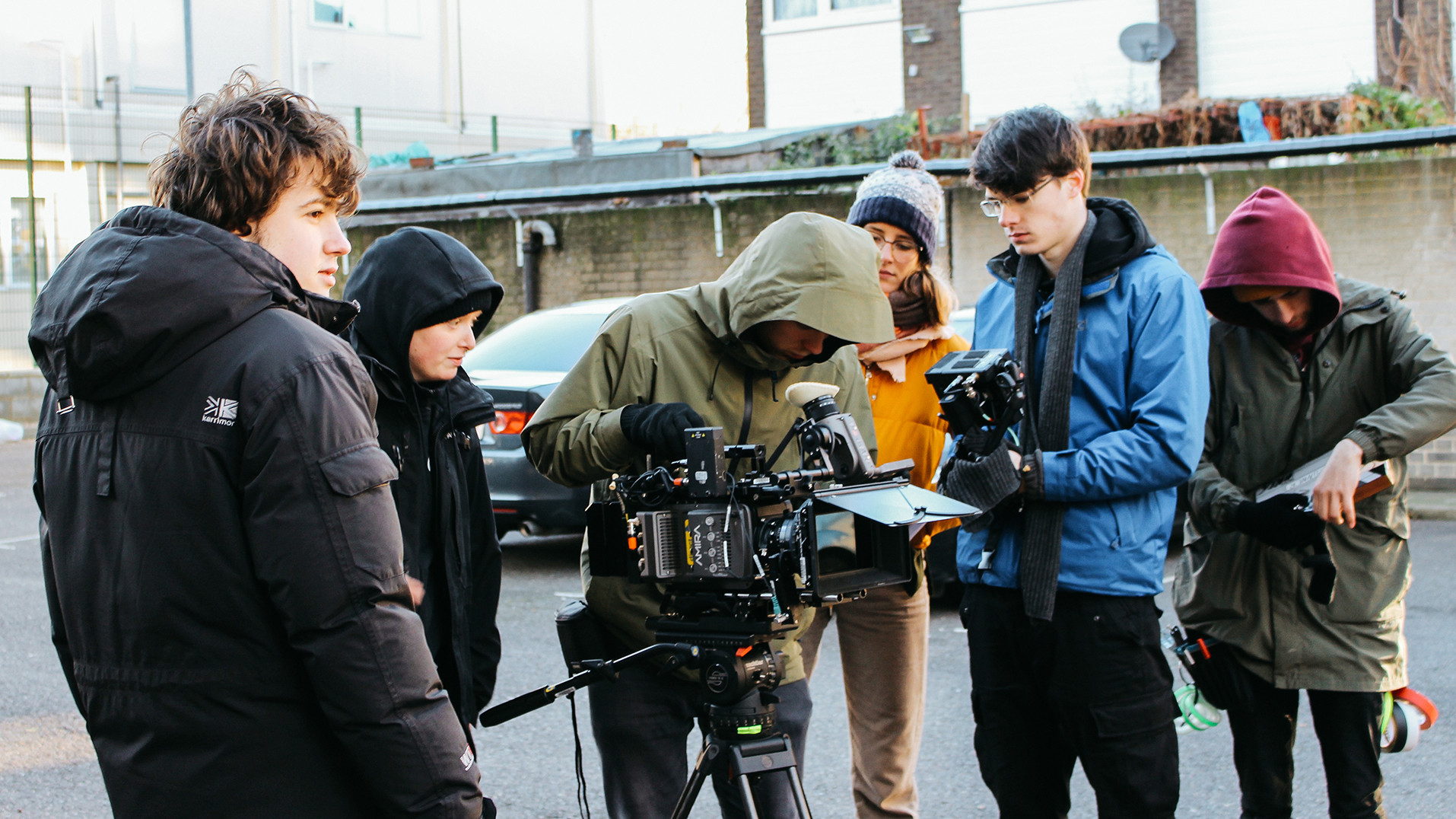
How do you approach a controversial subject without preaching to your audience?
I suppose it’s just about picking the right content because I easily could have cut that end line out about him not being remorseful. I think it would have been a completely different film, or ending, anyway. You would have gotten the impression that he was remorseful about what he’d done. I’m thinking about the truth of it, rather than what will make a cooler film festival film or something like that. I always try to stick to the actual character and what he was trying to get across.
Even in the edit, my friend was still involved. Now and then I’d send him a cut and he’d say, “That’s not exactly true” or “You’re making that a bit hammy or dramatic.” I think it’s just about letting people be involved throughout the entire process. It’s their story being told.
All photos are courtesy of photographer Sarah Boezalt.















































































